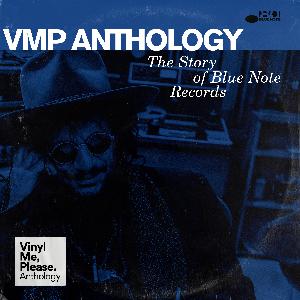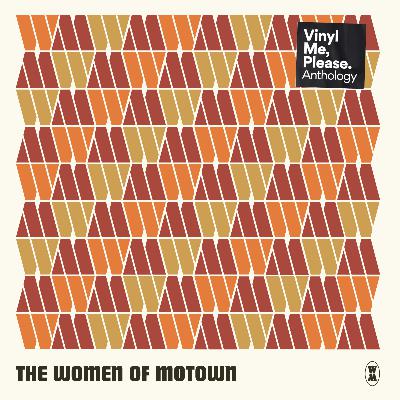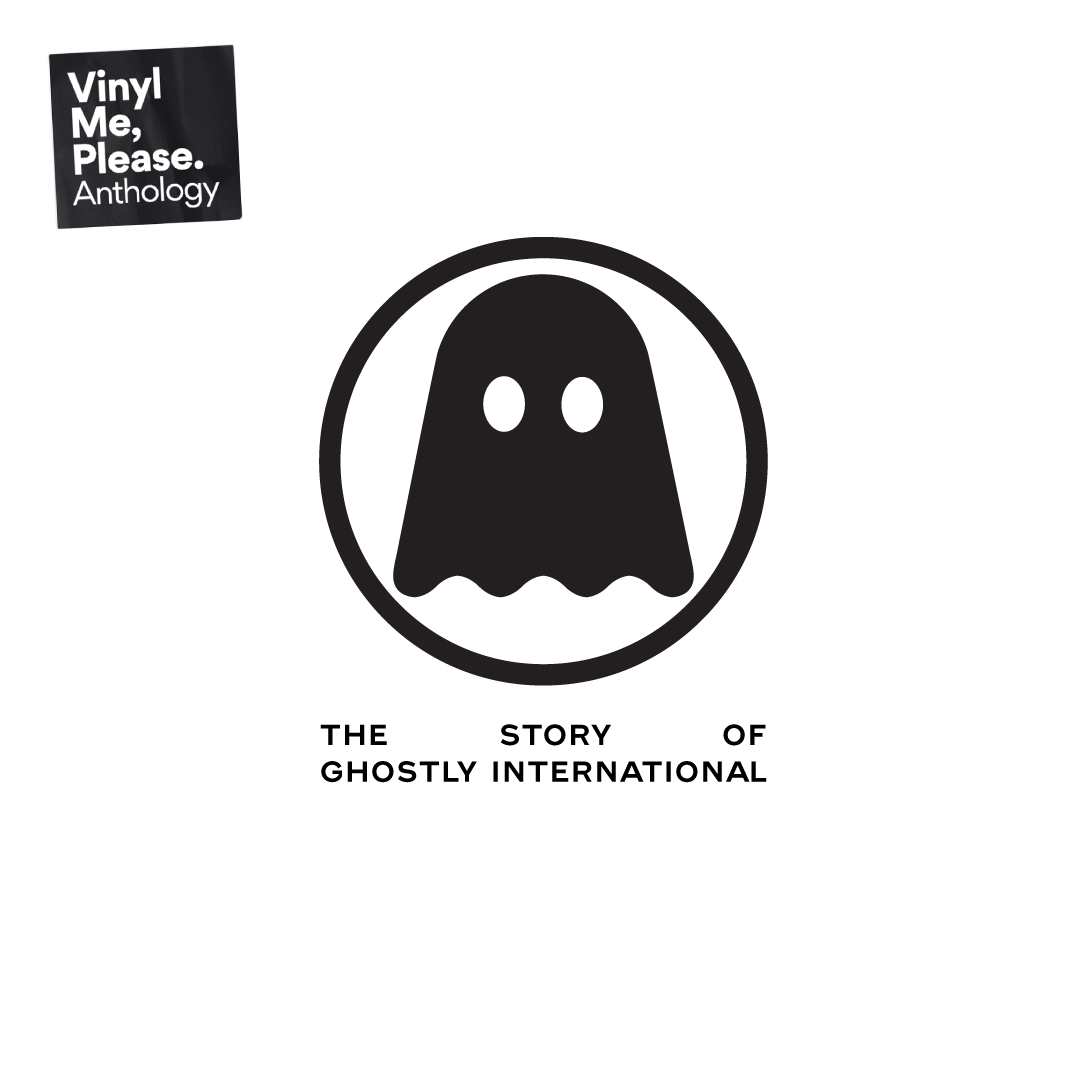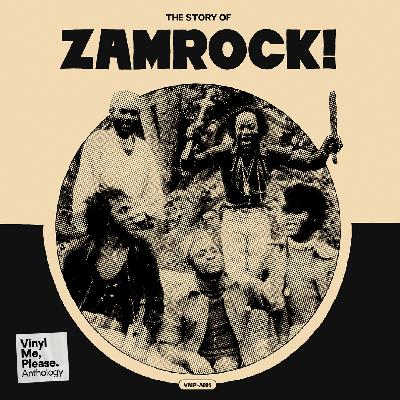Discover VMP Anthology
VMP Anthology

91 Episodes
Reverse
In an interview with Don Was, president of Blue Note, we talk about his history with the label, how he ended up working there, how he used to ride a bus just to hold Blue Note records as a teenager and why you should listen to more jazz.
In this episode, we talk to Blue Note president Don Was about how the loose, free-flowing culture at Blue Note let Horace Silver cut his first solo record when another performer backed out, and how Dexter Gordon made up for lost time following a prison sentence. Stay tuned to the end of the podcast for hints about your next two records.
In this episode, we talk about an organist on the Lou Donaldson album being the best bass player Don Was, president of Blue Note, has ever heard, even though he plays the organ, and how Wayne Shorter is a single-person history of jazz. We also discuss how Wayne and Lou have carried on as Blue Note artists, even today. And again, stay tuned to the end of this episode for hints on the final two albums of our new box set.
In this final episode of this season of VMP Anthology, we talk to Don Was about how the vibraphone has gone from a central piece of jazz big band to a semi-novelty and back again, the tumultuous middle years of Blue Note, and how signing young artists and letting them develop their own version of jazz remains a central purpose of Blue Note as it hits 80 years old.
On this prologue episode, we talk with Susan Whitall, the author of the book The Women of Motown and the author of the liner notes for our box set. Susan is also a longtime Detroit resident and was a writer and editor for Creem magazine and the Detroit News. In this episode, Susan--who will be our main guide through the albums featured in this edition of Anthology--talks about her book, the unique Detroit circumstances that led to Motown becoming such a powerhouse, and how the label succeeded with an everybody in the boat mentality.
We talk with Susan Whitall, the writer of the Liner Notes for our box set, about the first three albums in the box. Which, you know by now are Mary Wells’ Bye Bye Baby--I Don’t Want to Take a Chance, Martha and the Vandellas’ Heat Wave, and The Supremes Where Did Our Love Go. On This episode, Susan and I talk about Mary Wells being the blueprint for every Motown Diva who came after her. We’ll also talk about how Martha and the Vandellas’ impact feels muted now, but they were one of the biggest acts in the early days of Motown. And we’ll cover the Supremes, who along with the Temptations, blew the door open and made Motown into THE Motown.
We talk with Susan Whitall about the fourth and fifth albums in our Motown boxset, Tammi Terrell’s Irresistible and Syreeta’s Syreeta. In this episode, we talk about the sad tragedy of Tammi Terrell, and dispel rumors around her death. We also cover how Syreeta went from a backup vocalist to making some of the most adventurous R&B on the label in the early ‘70s, and how Motown’s move to LA opened it up to more genres and sounds. Stay tuned to the end of this episode to hear hints for the final three LPs in this edition of Anthology, which, if you’ve held off on opening all of them, will be revealed next week.
In this episode, we finish our talk with Susan Whitall, as we talk about how Tata Vega’s genre-less funk might have prevented her from being a star, but might have made her album sound timeless, and we talk about Teena Marie, who once threatened to kick Susan’s ass and who also never got the kind of credit she deserved. And in the final segment of this final episode, we head out to L.A. to talk with current Motown president Ethiopia Habtemariam about working with Erykah Badu and how giving artists like Erykah the space to create is the best thing a label can do. We also talk about how Ethiopia and her team are trying to keep the spirit of Motown alive in a modern world.
Season 3 Premiere. Upon the 20th anniversary of Ghostly International, Ghostly founder Sam Valenti IV and artists Dabrye, Todd Osborne and Will Calcutt recount the label’s origin story in Ann Arbor, Michigan, and explain Ghostly’s spiritual connection to Detroit and Chicago and the unique palette of influences – from booty music to Factory Records – and people that continue to shape the Ghostly aesthetic even 500 releases on. Hosted by Vivian Host
Cheese, cartoons and jazz are some of the topics covered as we unfurl further chapters in the Ghostly International history. We delve into the characters of the first Ghostly Swim compilation, and talk more about the label reaching out from the Midwest to the rest of the world, while Joshua Eustis of Telefon Tel Aviv recalls reigning in wild styles. Ghostly artist Shigeto (an Ann Arbor native) joins in to talk about the hero’s journey of his debut, Full Circle, and pouring heart, hardship and a lifetime of music-making into his unique sound. Hosted by Vivian Host
In this episode, we journey through landscapes both external and internal, exploring texture, timbre and tone. Bay Area guitarist and sound designer Christopher Willits walks us through the love and technology at the backbone of his work, and his collaborations with Japanese ambient and classical pioneer Ryuichi Sakamoto. Then, from Los Angeles, Ghostly design collaborator Will Calcutt and label manager Jeff Owens join Sam and Molly to talk about the intimate grandeur of This Is For the White In Your Eyes, the 2009 Ghostly debut from Copenhagen’s Choir of Young Believers.
In the fourth and final episode of this season of VMP Anthology, we dive deep into the aesthetics and curatorial ideas behind the final two albums in the Ghostly VMP Anthology box set: Ghostly Swim 2 and Thousands of Eyes in the Dark. Sam Valenti IV and Molly Smith talk to us about ego death, spooky paintings, music as a salve for these trying times and some new Ghostly artists to watch out for, plus Dabrye and Shigeto break down the making of some special tunes. Hosted by Vivian Host
In this intro episode about our Stax box set, The Story of Stax Records, we talk to Robert Gordon and Booker T. Jones about the label's history.
In this episode, we get to business, since time is tight, and discuss the first two LPs in your VMP Anthology box set: Booker T and the M.G.’s Soul Dressing, and Sam & Dave’s Hold on I’m Coming. We introduced you to Booker T and the M.G.’s during our last episode, but here we get into the group’s history, and Soul Dressing specifically. Later this episode, I sit down with one of the songwriters of most of Sam & Dave’s iconic songbook.
When we last left you, Stax was just starting it’s climb from a regional soul label to one of the most iconic record labels of all time, thanks in part to a distribution deal with Atlantic Records. The boom thanks to artists like Sam & Dave and Booker T. and the M.G.’s--along with a changing music industry--lead to the label starting it’s concerted push into LPs, vs. being the singles label they’d been before. The same time this was happening, a Georgian guitarist named Johnny Jenkins got offered some studio time at Stax. And little did Stax know, a guy along for the ride would become their most popular artist.
When we last left you, Stax was left reeling when Otis Redding and the Bar-Kays died in that tragic December 1967 plane crash. The next two albums in your box set came out in the immediate aftermath of the crash, during a 1968 and 1969 that eventually became known in Stax lore as the Soul Explosion.
When we left our last episode, Stax was putting out many, many albums in 1969 to make an “instant catalog” and try to dig themselves out of the disasters of 1967 and 1968. In this final set of records, we have two albums from 1972, which, as we’ll learn from Robert Gordon here, was one of the last good years at Stax.
You’ve already opened your box by now, and now you’re probably wondering what you’re doing here. Well, Stax closed in 1975, as we established on the last episode, but the road to Stax as it is today: A label and a thriving museum and music academy, has 45 years of history for us to catch up on. As I mentioned in the first episode, the Stax complex at 926 E. McLemore Ave. in Memphis today is not the same Stax that was there in 1975. It took a lot of work--mainly by a Stax writer and office worker named Deanie Parker--to deliver what I think is the best music museum on earth: The Stax Museum of American Soul Music. In this, our sixth and final episode of the season, I sit down with the museum’s executive director Jeff Kollath to talk about the museum’s mission, and how Stax went from a studio to a pile of rubble to a museum.
Amanaz released their sole album Africa in 1975. In this episode, vocalist Keith Kabwe and lead guitarist Isaac Mpofu provide the backstory with some surprising insights into the genesis of one of Zamrock’s most sought after and critically acclaimed releases. We also hear from the producer of the album Billie David Nyati of the Zambia Music Parlour label and the bassist of the band Salty Dog, Norman Muntemba, describes Zambia’s early recording studios. Also featured are rare tracks from Amanaz offshoot bands Heathen and Drive Unit.
An episode of Zamrock firsts. Producer Billie David Nyati, who helped run Zambia Music Parlour under the direction of Edward Khuzwayo, recounts the excitement of being Zambia’s first independent record label, kick-starting the country’s recording boom in the early 1970s with an album by the band Tinkles. Vocalist Jagari Chanda tells the story of WITCH, Zamrock’s most beloved ensemble and the first Zambian rock group to release a vinyl record, namely the privately pressed edition of their debut release Introduction. Vocalist Violet Kafula, Zambia’s first female recording artist and a member of the band Crossbones, tells the story of the album Wise Man and the hit single that earned her the affectionate title the “Godmother of Zambian Pop.”


















Would like to share some notes with the producer of this wonderful podcast. Extremely exciting to listen to this amazing body of work.